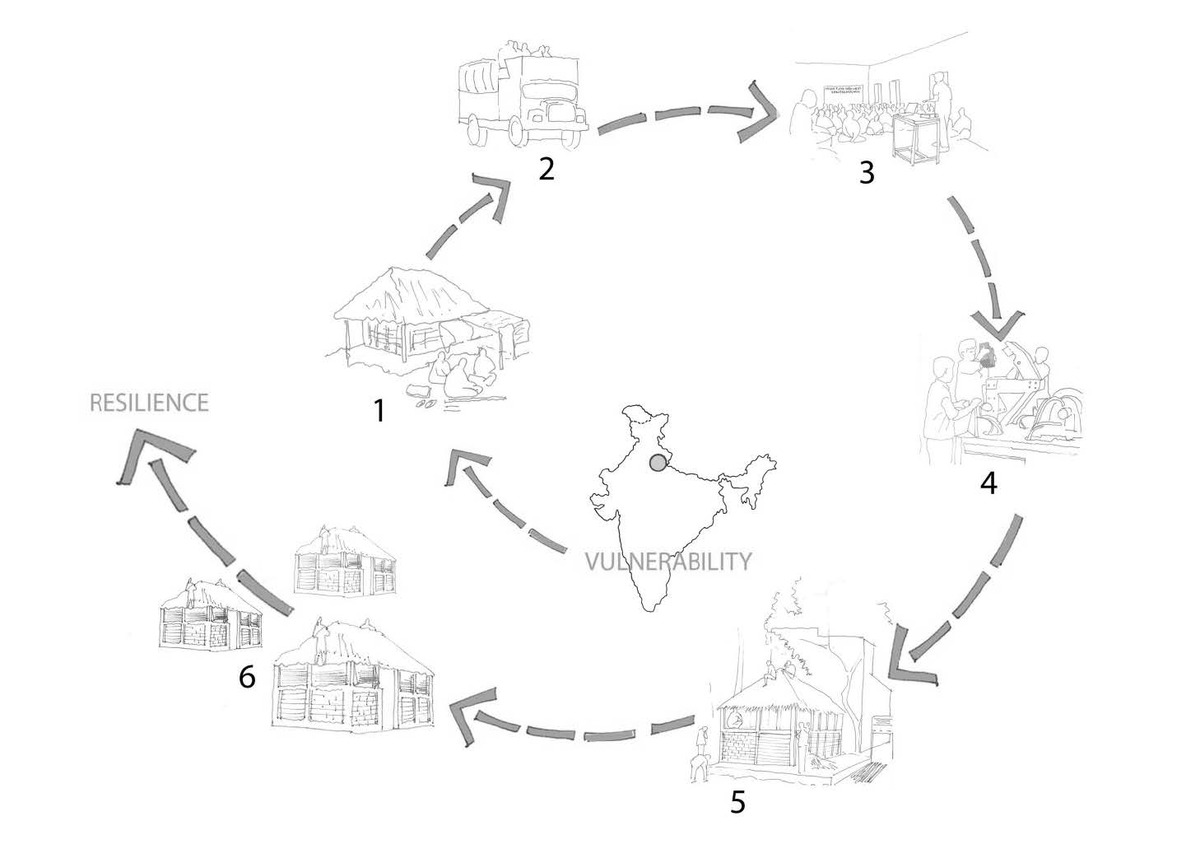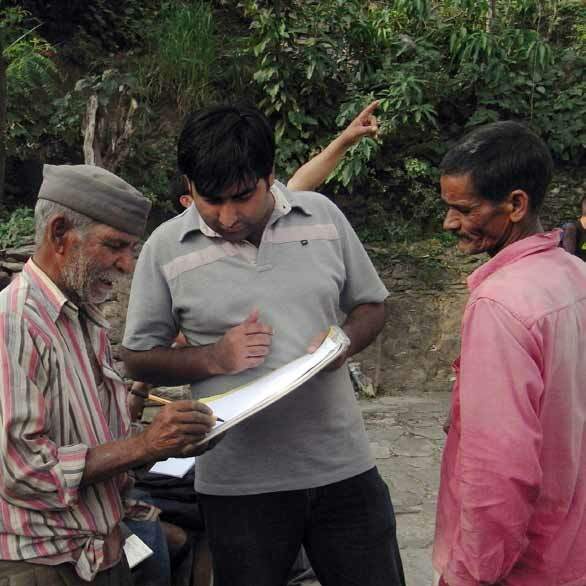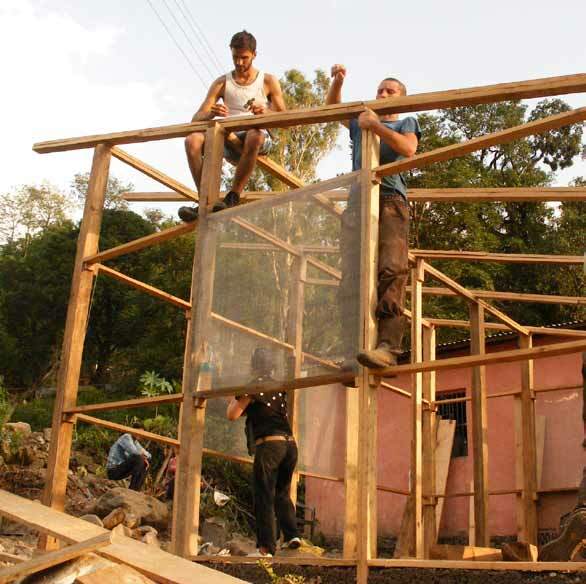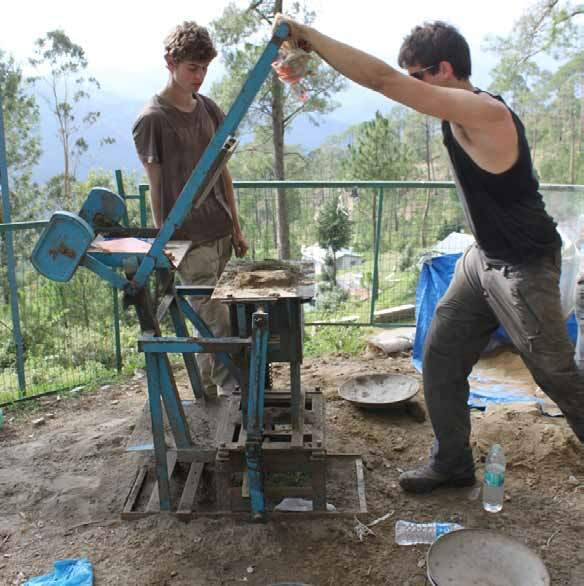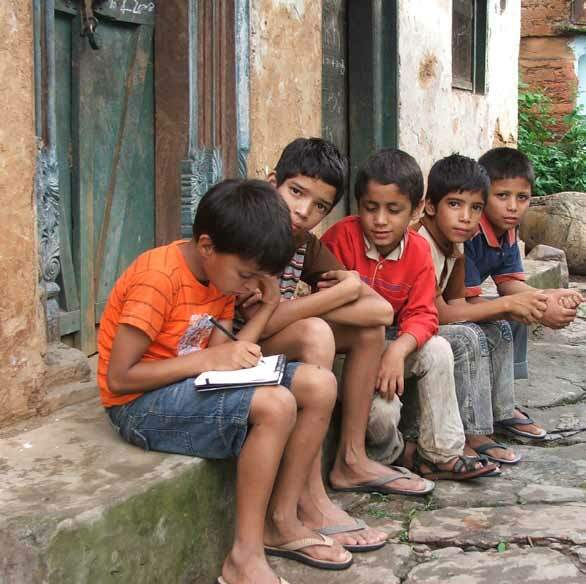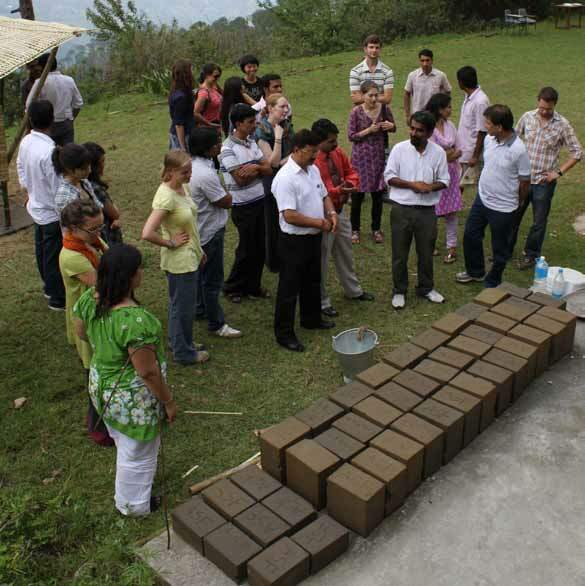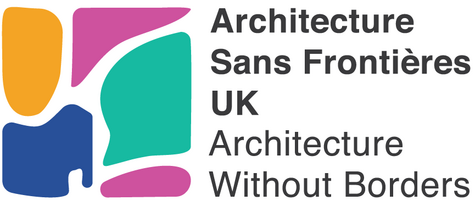Location: Almora, Uttarakhand, India
Project partners: SEEDs India, Lok Chetna Manch, The Walter Guinness Trust
Activities: Socio Technical Support
Team: S. Ernst, A. Edwards, S. Jopling, B. K. Johnson, Munby, & C. Palmer (2010)
The 2010 Reducing Risk/Promoting Sustainability workshop was held in Uttarakhand, India, by ASF-UK and SEEDS-India, concentrating on resilience within education. The aim was to combine vulnerability reduction and sustainability, targeting local materials to achieve safe, comfortable buildings without detrimental environmental impacts. A key activity within the workshop was ‘harvest mapping’, a process to trace building materials’ sources and convert them into financial and environmental costs. Participatory Rapid Appraisal (PRA) involves communities to locate people, families and resources and consider topography, geography and resources through collaborative discussion and mapping of ideas. The resulting guide proposes a set of principles for a new disaster management plan for the area, focusing on the built environment, within three categories: resources, shelter and settlement. The state is prone to monsoon flooding due to deforestation, earthquakes, landslides, avalanches and forest fires. These disasters have resulted in a dependence on hi-tech materials in shelter that do not contribute to the local economy or skill base, with a dependence on the original manufacturer for maintenance. The workshop explored technology such as bamboo prototypes for earthquake resistant building to compressed stabilised earth blocks. Over two weeks, participants engaged with the community to establish the issues affecting them and promote appropriate shelter technologies. Students of the workshop investigated methods of combining kuccha materials (e.g. bamboo and mud) and pukka (e.g. concrete and masonry) by infilling a solid frame with kuccha materials, which would be replaced at a later date by pukka components.
Impact: 2 week ‘Reducing Risk and Promoting Sustainability’ workshop as a part of a 6 month project
